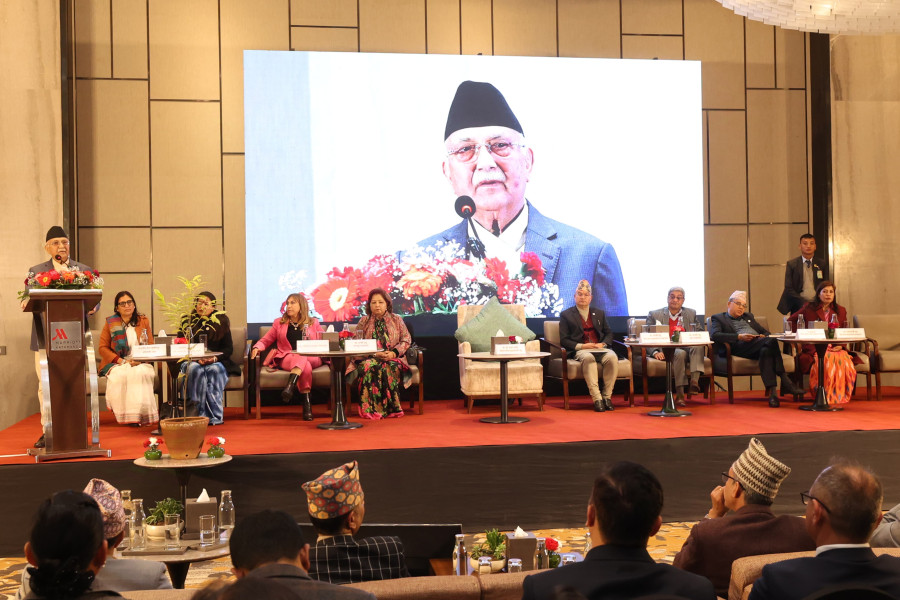National
PM Oli says it’s unwise to increase tiger numbers at the cost of human lives
The prime minister argues it’s impractical and unwise to increase the number of tigers by endangering human lives.
Post Report
Prime Minister KP Sharma Oli has said that Nepal’s tiger population should match the available forest area, stating it is “impractical and unwise to protect tigers by endangering human lives.”
Speaking at a function organised by the Ministry of Forests and Environment in Kathmandu on Thursday to review COP-29 outcomes, Oli highlighted the challenges Nepal faces in balancing conservation efforts with the safety and livelihoods of its citizens.
The prime minister said that Nepal has already surpassed international targets for tiger conservation. “We were asked to double our tiger population in 10 years, and while we could have achieved this by 2020, we exceeded expectations, with over 250 tigers by 2018. Currently, we have more than 350 tigers. We don’t need to increase this number further; 150 would be sufficient,” he said.
Oli proposed gifting surplus tigers to other nations as a way to manage the population.
“Why not gift tigers to friendly nations? Just as some rear peacocks or eagles, why not let others keep tigers? Better to gift these majestic animals to our allies. The tiger population should match the available forest area—it’s impractical and unwise to protect tigers by endangering human lives.”
Criticising those who downplay the human cost of tiger conservation, Oli said, “Some argue that losing one or two people to tiger attacks is insignificant. But those who make such remarks should consider: are they willing to become the victims?”
Oli also called for international recognition of Nepal’s extensive conservation efforts, pointing out that with over 47 percent forest coverage and vast areas of rivers and lakes, Nepal has made immense contributions to conservation.
“Yet, leaders from wealthy nations come here and lecture us on increasing tiger numbers while ignoring our sacrifices,” said Oli.
Drawing comparisons with global conservation efforts, Oli said, “The Amazon rainforest is nearly 38 times larger than Nepal. Sixteen countries in Latin America, including Brazil, work to conserve it. Nepal, with an area of 148,000 square kilometres, has nearly 47 percent of its land covered by forests.”
“We face a scarcity of paddy, wheat, and other essential products. Shouldn't we be compensated for this? We allocate land for forests, often enduring hunger ourselves. Do we not deserve recognition for these efforts? Shouldn't we be paid for it? For us, around 30 percent forest coverage would suffice.”




 13.12°C Kathmandu
13.12°C Kathmandu













